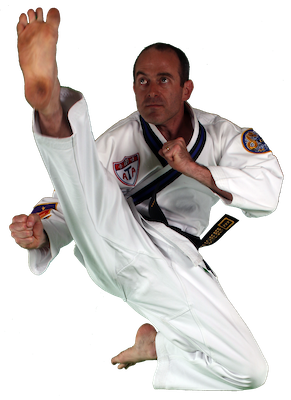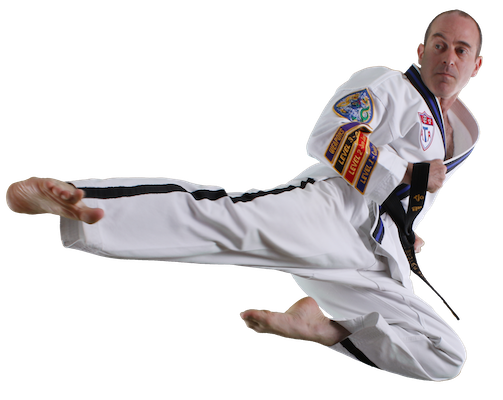
Martial Arts Philosophy
When I was in college, a friend's mom suggested I join the crew team. I told her I was too short to row crew. She responded with surprise: "You're not short!" In fact, I was only 5'6. (I have shrunk as I've aged, and now my doctor tells me I'm only 5'5.) But my confident bearing gave her the impression that I was taller than I really was. A few years later, when I was a student at Oxford, I noticed that whenever I took walks with fellow Rhodes Scholars my neck ached afterward from looking up at them during conversation. It turns out that taller men are much more likely than shorter ones to be seen as leaders and to be selected for leadership positions. That's why most US presidents have been more than six feet tall. Yet I had been awarded the prestigious Rhodes Scholarship despite my short stature.
These experiences encapsulate my view of martial arts training. We can recognize martial artists before they have ever thrown a punch or kick, simply by the way they carry themselves. Several years ago, a parent from another school approached me at a tournament in Los Angeles. He told me that during his drive from northern California to LA, he had used the bathroom at a rest stop. He entered the bathroom just as a young boy was approaching the door. The boy (who was not wearing any clothing identifying himself as a martial arts student), stopped and held the door for the parent. The boy then waited until the parent had left the bathroom before entering to use it himself. The parent said to me: "I was not surprised when I arrived here and saw that the boy is your student, and that he is a black belt. I knew he must be a martial artist by his courtesy, his alertness to potential danger, and his calm decision-making."
This is my martial arts philosophy: Martial arts training transforms its practitioners completely, shaping everything from our physical bearing to our response to stress or adversity to our empathy and generosity toward others.
Teaching Philosophy
When I joined the instructor training program in 1987, my instructor Chief Master Thor asked me, "Why do you want to be an instructor?" I responded: "Because it will make me a better martial artist. In order to be able to explain something to a beginner, you have to really understand it yourself." In retrospect, that was a somewhat solipsistic answer.
Over time, my teaching philosophy evolved, becoming centered less on my own development and more on that of my students. Like most young instructors, I used to stand in front of the class and demonstrate my impressive skills in order to draw gasps of admiration from students and spectators. As years passed, I learned to share (or better yet, shift) the spotlight, giving my students opportunities to shine.
In recent years, this philosophy has evolved further. I take seriously the notion that we are not simply martial arts masters but rather master instructors. We are teachers of teachers. It is not enough to commit ourselves to continuous growth and improvement (though we must do that). Nor is it enough to cultivate our students and enable them to fulfill their potential (though that, too, is essential). Instead, we must develop instructors whose physical and teaching skills surpass our own, so that they can continue to inspire and guide future generations of students long after we are gone.
There is another important aspect to my martial arts teaching philosophy: Martial arts training can benefit everyone, and everyone should have an opportunity to benefit from it. This philosophy drove the ATA to become the first martial arts organization to offer special abilities divisions in tournaments. It explains why, even before that, my sister Gina was able to train and compete despite having minimal use of her legs because she had polio as a child in India. And it is why I started a non-profit organization called Team PRIDE nearly 20 years ago, with the goal of ensuring that the children who stand to benefit most from Songahm Taekwondo training will not be precluded from participating simply because their families cannot afford tuition.
I believe this is what Eternal Grand Master Haeng Ung Lee had in mind when he interpreted the word "pilsung" (필승) to mean "personal victory." Our victories are personal because they are meaningful to us personally. And this means anyone—regardless of their natural physical, intellectual or mental gifts—can achieve success in the martial arts and in life.


